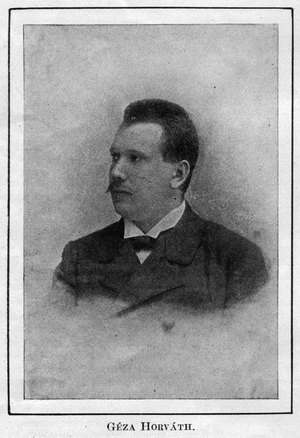The races that make up the great Slav family have contributed much to music. One need but stop a moment to think of the Russians, the Poles and Hungarians, the Bohemians, and with them various smaller divisions. Everywhere that one goes in Europe he is likely to meet representatives of musical Hungary in the orchestras and bands, so picturesquely attired, who charm the jaded ear with their captivating rhythms, their bizarre ornamentations and searching melodies. Hungary has done much for music. In the wide plains, along the broad rivers, in the valleys and on the mountain slopes the people of Hungary make merry with song and dance.
 Like all states in which the German educational idea is followed, music has a distinct place in the scheme of intellectual training. Teachers in schools generally have had a musical education and provision is made for musical work in the schools. This official recognition of music is valuable to those who follow it as a profession, and is a safeguard to those who study, as inferior teachers cannot secure official sanction to their work.
Like all states in which the German educational idea is followed, music has a distinct place in the scheme of intellectual training. Teachers in schools generally have had a musical education and provision is made for musical work in the schools. This official recognition of music is valuable to those who follow it as a profession, and is a safeguard to those who study, as inferior teachers cannot secure official sanction to their work.Géza Horváth, a number of whose compositions have appeared in The Etude from time to time, was born in Komárom, Hungary, May 27, 1868. Although his parents expected him to learn a trade, his inclinations were for a different career. He attended college in his native town, and at eighteen decided to enter music as a profession. The best place for a thorough musical education was, naturally, the capital, Vienna, and thither he turned. He studied under the best teachers the Conservatory afforded and received a thorough groundwork in music. In 1892 he took the examination in music prescribed by the State Board of Education, and was licensed to teach music.
American readers probably do not know that no one is permitted to organize and conduct an educational institution in certain European countries without having the sanction and diploma or certificate of the government. Austria is very strict on this point. For a time Mr. Horváth taught in a large school, but soon started out for himself and built up a flourishing music school in Vienna, which he still directs.
He felt the impulse to use his training in creative lines, and as his compositions proved acceptable both to publishers and public, it did not take long for him to win a considerable reputation as a composer of useful educational pieces for piano and also for violin. In addition he gave attention to works for choral organizations. His compositions are among the favorite publications of leading European houses and also several American publishers. In the literary line his best work is called “Piano Literature for the Young.”



